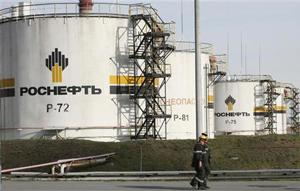Black Sea diesel plant upgrade delayed by a year to 2019
MOSCOW (Reuters) — Russia's Rosneft has postponed plans to upgrade a plant on the Black Sea by around a year, delaying the supply of an additional 5.5 MMt of Russian diesel per year, industry sources told Reuters.
Rosneft is building a new hydro-cracking unit at its refinery at the Black Sea port of Tuapse, to produce Euro 5 diesel fuel intended for export, primarily to the Mediterranean.
The new plant, together with other upgrades underway at the refinery, will allow it to produce up to 5.5 MMt of Euro 5 fuel per year. At the moment, the Tuapse refinery does not produce any diesel of that grade.
The latest plan envisaged that the unit would start up in the first quarter of 2018, but that timetable has slipped, four industry sources said, because of construction delays.
Three of the sources, who all spoke to Reuters on condition of anonymity, said the unit will now only start operating in mid-2019. A fourth industry source said that in the best case scenario, start up could be at the end of 2018.
Rosneft declined to comment.
Euro 5 is a grade of diesel with a low sulphur content and is widely used in diesel vehicles in Europe.
The influx of Euro 5 diesel from the Tuapse plant onto the Mediterranean market would create additional competition for other refiners supplying the market. These include European refiners, and Saudi Arabia.
Annual demand for Euro 5 diesel in southern Europe is around 80 MMt, according to traders' estimates, so the Tuapse plant, once running at full capacity, would account for just under 7% of that demand.
The launch of the Tuapse unit would also make it harder for Mediterranean refiners to obtain feedstock. At the moment, many of them buy in fuel oil and vacuum gas oil—the raw material for producing diesel—from Rosneft.
Once the Rosneft hydro-cracker is up and running, at least some of those volumes are likely to be diverted to Tuapse instead.
Reporting by Olesya Astakhova and Maxim Nazarov; Additional reporting by Natalia Chumakova; Writing by Tatiana Vodyanina and Kevin O'Flynn; Editing by David Evans







Comments